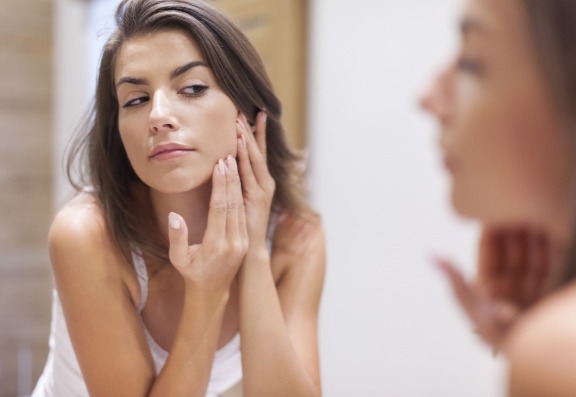It was reported on an American news site at the end of 2010 that a team of researchers from the Chicago Center for Facial Plastic Surgery in the United States is currently looking into the use of botulinum toxin type A, namely Botox®, for the treatment of cold sores, caused by the virus herpes simplex, which usually appears around the lips causing much embarrassment for the sufferer.
The theory behind the research is that the herpes virus lies dormant in the nerve roots of a sufferer and is only activated when their immune system is lowered, perhaps by a common cold. At this point the virus is activated and migrates along the nerve, culminating in the painful, tingling, blistering and crusting skin breakdown typical of a code sore
Therefore it is thought that the effect that Botox has on the nerves which send signals to the muscles, such as happens when used in cosmetic techniques on the face to ‘paralyze’ specific muscles, would result in the virus also being blocked, hence the virus is forced to remain dormant in the nerves and cannot produce the tell-tale cold sores.
Can Botox be used to treat cold sores
We asked Dr. David Eccleston, Clinical Director at Medizen and adviser to Consulting Room™ who has been using botulinum toxins since 1994 in cosmetic techniques in all areas of the face, for the treatment of migraine, tension headaches, tooth grinding and excessive sweating, for his expert opinion on this proposed new use.
“Firstly, these are very early days, and it would not be right to raise hope in the millions of sufferers from cold sores until we have some real evidence for efficacy” said David.


Botox for treating cold sores
“Botox® works by preventing the release of a chemical called acetylcholine at the nerve ending which thus stops messages being 'sent' to the muscle or sweat gland that the nerve is attached to.
This explains the effect of the product in treating those facial wrinkles caused by muscular contraction such as the frown and crow's feet lines, and in the treatment of excessive armpit sweating or 'hyperhidrosis'.”
“The logic follows that if the nerve is stopped from working by Botox®, then the virus will not be able to migrate into the nerve endings in the skin.
Botox for treating cold sores
This is just a theory, as nerve conduction from the root involves many other chemical processes. Most importantly, the product has never been trialled by the manufacturer for the management of cold sores, and a single-centre investigative study which is not endorsed by the manufacturer of the drug has little clinical relevance.
Were some significant results to be achieved in this investigator-initiated study, then the manufacturer may well decide to organise a multi-centre placebo-controlled clinical study involving large numbers of patients. It is only through analysing this quality and quantity of data that one can deliver proof of efficacy, which is the first step to applying for and gaining a medical licence for a new indication for treatment with the product.”
The specialists involved in the clinical trial programme have taken measures to make it clear that they do not inject the Botox® into the primary muscles of the lips for patient safety.
Does Botox work to treat cold sores
Dr. Eccleston also raises this important point of safety; “From a practical point of view, cold sores are usually found in the mouth area.
Using a powerful muscle relaxing drug in this area has the potential side effect of weakening the muscles round the lips, potentially leading to drooling, difficulty enunciating certain sounds such as 'p' and 'b', and problems with lip pursing and using a straw to drink with.
All these are well known side effects when botulinum toxins are used in the mouth area in too high a dose or by an inexperienced practitioner.”

The manufacturer of Botox
The manufacturer of Botox®, Allergan, has made it quite clear that the study being done in the USA is nothing to do with them, nor do they endorse off-license use of their product.
Currently, we are not aware of anyone in the UK who is looking into providing such treatment until the efficacy is properly proven.
Watch this space to see if anything develops!

Author: Lorna Jackson
BSc. (Hons)
Lorna was the Editor of Consulting Room (www.consultingroom.com), the UK's largest aesthetic information website, from 2003 to 2021. She is an industry commentator on several different areas related to the aesthetic and cosmetic surgery industry; collating and evaluating clinical data, news and statistics and writing a magazine, blogs and feature articles for Consulting Room and various consumer and trade publications, including Aesthetic Medicine, Cosmetic News and Aesthetic Dentistry Today. Lorna regularly attends key conferences and educational events for the industry and has close contact with many of the suppliers who manufacture and distribute products and devices utilised in aesthetic medicine. Lorna also liaises with press and members of the media researching cosmetic surgery, with the aim of educating and raising awareness amongst the public.
To view more blogs by Lorna Jackson please click here.
